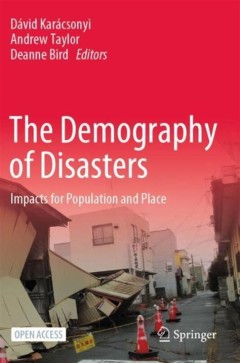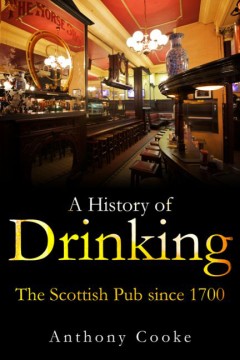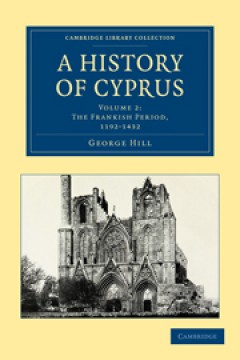Filter by

A World Without Hunger
An Open Access edition of this book is available on the Liverpool University Press website and the OAPEN library as part of the Opening the Future project with COPIM. Drawing on the rich personal archive of the geographer Josué de Castro, this book tells a new history of geography by following one of the twentieth century's most influential and creative Brazilian intellectuals from the estuari…
- Edition
- -
- ISBN/ISSN
- 9781802079012
- Collation
- oer.unej.ac.id
- Series Title
- Liverpool Latin American Studies,
- Call Number
- -

The Demography of Disasters = Impacts for Population and Place
This open access book provides worldwide examples demonstrating the importance of the interplay between demography and disasters in regions and spatially. It marks an advance in practical and theoretical insights for understanding the role of demography in planning for and mitigating impacts from disasters in developed nations. Both slow onset (like the of loss polar ice from climate change) a…
- Edition
- 1
- ISBN/ISSN
- 9783030499204
- Collation
- XVII, 268 ill; lamp
- Series Title
- -
- Call Number
- -

The Pangenome = Diversity, Dynamics and Evolution of Genomes
This open access book offers the first comprehensive account of the pan-genome concept and its manifold implications. The realization that the genetic repertoire of a biological species always encompasses more than the genome of each individual is one of the earliest examples of big data in biology that opened biology to the unbounded. The study of genetic variation observed within a species…
- Edition
- 1
- ISBN/ISSN
- 9783030382810
- Collation
- XIV, 307 hlm; ill., lamp.,
- Series Title
- -
- Call Number
- -

Loneliness in Europe: Determinants, Risks and Interventions
This open-access volume accompanies the microdata release of the EU Loneliness Survey. Loneliness, often referred to as the ‘epidemic of the 21st century’, has emerged as a grave public health concern. For years, a lack of comprehensive European cross-national data hindered a thorough examination of this issue. In 2022, the European Commission's Joint Research Centre conducted the inaugu…
- Edition
- -
- ISBN/ISSN
- 9783031665820
- Collation
- XVIII, 176
- Series Title
- -
- Call Number
- -

Demographic and Family Transition in Southeast Asia
- Edition
- -
- ISBN/ISSN
- 978-3-030-85679-3
- Collation
- -
- Series Title
- -
- Call Number
- -
- Edition
- -
- ISBN/ISSN
- 978-3-030-85679-3
- Collation
- -
- Series Title
- -
- Call Number
- -

Challenging Mobilities in and to the EU during Times of Crises
This open access book offers a cross-disciplinary view of challenging mobility issues for migrants and refugees in Europe and particularly Greece during the last decade when the economic and refugee crises coincided. It offers new analyses and data on a diverse range of topics concerning new emigrants as well as refugees and mobilities in Greece. The book covers themes which are not only relate…
- Edition
- 1
- ISBN/ISSN
- 978-3-031-11574-5
- Collation
- -
- Series Title
- IMISCOE Research Series
- Call Number
- XXIII, 319

Migrants, Refugees and Asylum Seekers’ Integration in European Labour Markets
This open access book discusses how, and to what extent, the legal and institutional regimes and the socio-cultural environments of a range of European countries (the Czech Republic, Denmark, Finland, Greece, Italy, Switzerland and the UK), in the framework of EU laws and policies, have a beneficial or negative impact on the effective capacity of these countries to integrate migrants, refugees …
- Edition
- 1
- ISBN/ISSN
- 978-3-030-67284-3
- Collation
- -
- Series Title
- IMISCOE Research Series
- Call Number
- XI, 258

The genealogy of a gene :patents, HIV/AIDS, and race
In The Genealogy of a Gene, Myles Jackson uses the story of the CCR5 gene to investigate the interrelationships among science, technology, and society. Mapping the varied "genealogy" of CCR5 -- intellectual property, natural selection, Big and Small Pharma, human diversity studies, personalized medicine, ancestry studies, and race and genomics -- Jackson links a myriad of diverse topics. The hi…
- Edition
- -
- ISBN/ISSN
- 9780262327190
- Collation
- 1 online resource (xii, 336 pages) :illustrations, map.
- Series Title
- -
- Call Number
- -

A History of Drinking The Scottish Pub since 1700
A social history of Scottish drinking and drinking establishmentsPoets and writers from Robert Burns and Walter Scott to Ian Rankin and Irvine Welsh have left vivid descriptions of the pleasures and pains of Scottish drinking places. Pubs also provided public spaces for occupational groups to meet, for commercial transactions, for literary and cultural activities and for everyday life and work …
- Edition
- -
- ISBN/ISSN
- 9781474400138
- Collation
- -
- Series Title
- -
- Call Number
- -

A History of Cyprus
Sir George Francis Hill (1867–1948), was perhaps best known as a numismatist, although his scholarly interests and accomplishments included a range of time periods and subjects. A classicist by training, Hill built his career at the British Museum's department of coins and medals. In his forty-three years there he produced volumes on coins of antiquity; Greek history and art; coins, heraldry,…
- Edition
- -
- ISBN/ISSN
- 9780511751714
- Collation
- -
- Series Title
- Cambridge Library Collection - European History
- Call Number
- -
 Computer Science, Information & General Works
Computer Science, Information & General Works  Philosophy & Psychology
Philosophy & Psychology  Religion
Religion  Social Sciences
Social Sciences  Language
Language  Pure Science
Pure Science  Applied Sciences
Applied Sciences  Art & Recreation
Art & Recreation  Literature
Literature  History & Geography
History & Geography